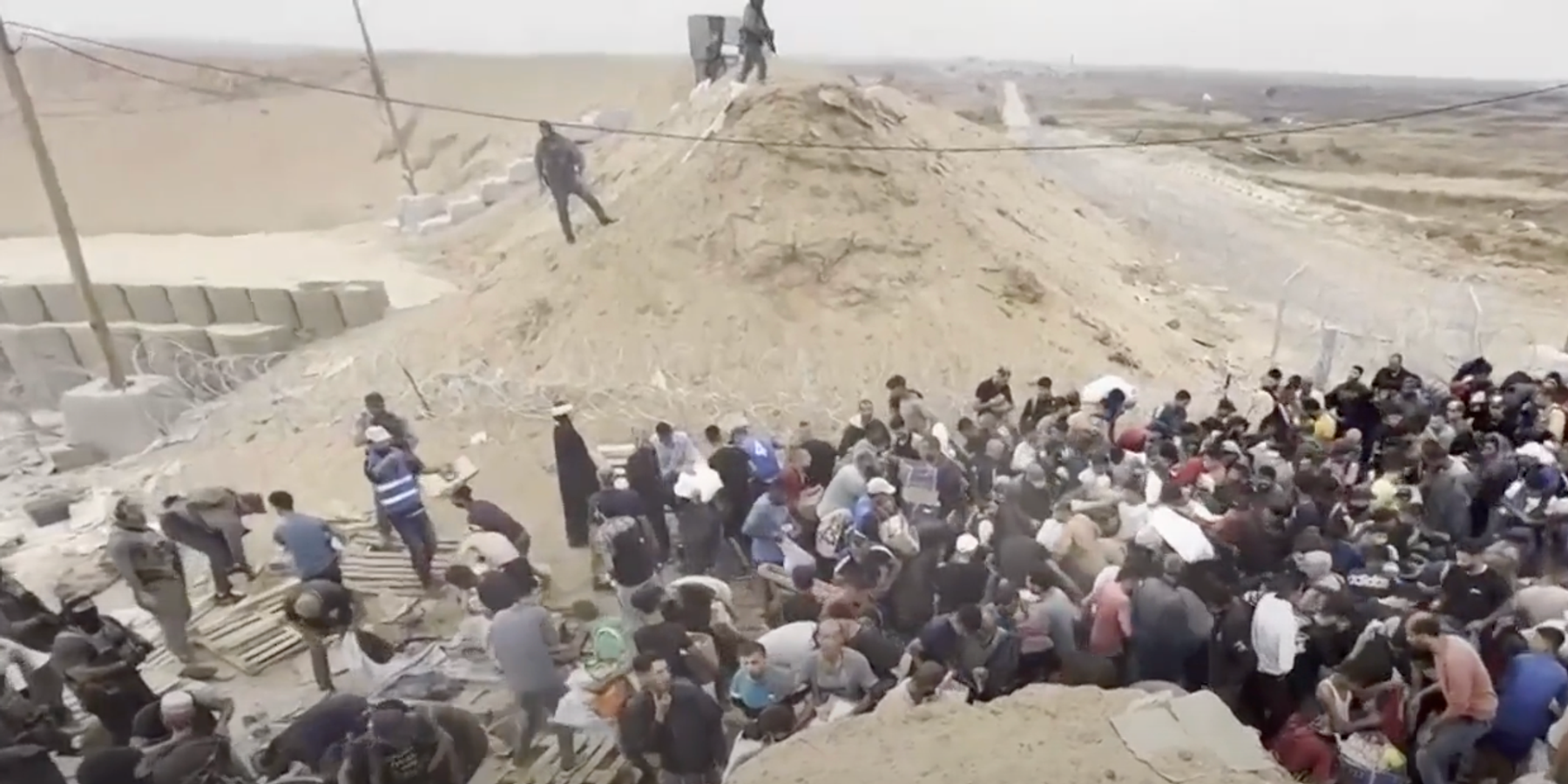The U.S. is once again entangled in a contractor scandal in a combat zone — this time in Gaza.
During the Iraq War, the name Blackwater became shorthand for contractor abuse after the 2007 Nisour Square massacre, where 17 civilians were killed. Since then, Washington has leaned heavily on private contractors, primarily for logistics, but also for security roles that keep U.S. forces out of direct sight.
“Contractor” has at times become a sanitized term for “mercenary” in the United States, yet the world sees them much like Russia’s Wagner Group: extensions of state power. If the latest reports of abuse are true, the damage won’t be limited to Gaza — it will land squarely on America’s credibility. Washington can’t subcontract responsibility.
There were already serious concerns about the practices and effectiveness of the Gaza Humanitarian Foundation (GHF). But the current scandal broke when two U.S. contractors working at aid distribution sites under GHF told the Associated Press — on condition of anonymity — that some of their colleagues were using live ammunition, stun grenades, and pepper spray against Palestinians trying to get food.
The contractors provided disturbing video and photo evidence, claiming that poorly trained guards with little oversight were sometimes firing directly toward the crowd.
GHF and its subcontractor, Safe Reach Solutions, deny any serious injuries and insist that live fire was used only as a warning to control crowds. However, both the contractors’ accounts and the footage suggest otherwise. Launched in February 2025 to replace the U.N. aid system amid an Israeli blockade, the U.S.-backed GHF has already seen nearly one-third of its June distributions result in injuries, according to internal reports.
Moreover, this isn’t the first time the American contractors made headlines at the sites, including a meltdown when the aid centers were first launched.
Externally, the Gaza Health Ministry has reported more than 600 Palestinian deaths and 4,200 wounded at these aid centers since they opened. The Israeli newspaper Haaretz reported last week, based on IDF soldier interviews, that forces were ordered to deliberately shoot at unarmed Gazans at these sites, even when no threat was present.
The implications for the U.S. are severe — not only does it raise the possibility that American contractors are directly harming or even killing Palestinian civilians, but it also revives the controversial precedent of outsourcing combat-zone roles. There’s a reason the United Nations and not armed U.S. contractors was once tasked with aid distribution. The primary victims, of course, are Palestinians being hurt or terrorized while trying to feed their families. But the reputational and moral cost to the United States is real, as is the erosion of norms, like the basic one that you don’t shoot at starving people.
You can watch the AP’s full video here.
For its part the GHF has released a statement on the allegations in the AP story:
“GHF launched an immediate investigation when the Associated Press first brought these allegations to our attention. Based on time-stamped video footage and sworn witness statements, we have concluded that the claims in the AP’s story are categorically false. At no point were civilians under fire at a GHF distribution site. The gunfire heard in the video was confirmed to have originated from the IDF, who was outside the immediate vicinity of the GHF distribution site. It was not directed at individuals, and no one was shot or injured.
- US contractors lose control amid meltdown at new aid center in Gaza ›
- Is the US now funding the bloodbath at Gaza aid centers? ›
- Congress lets Israel off the hook as more starving Gazans die | Responsible Statecraft ›
- Will contractor disgust bring down Israel's 'hunger games' in Gaza? | Responsible Statecraft ›
















